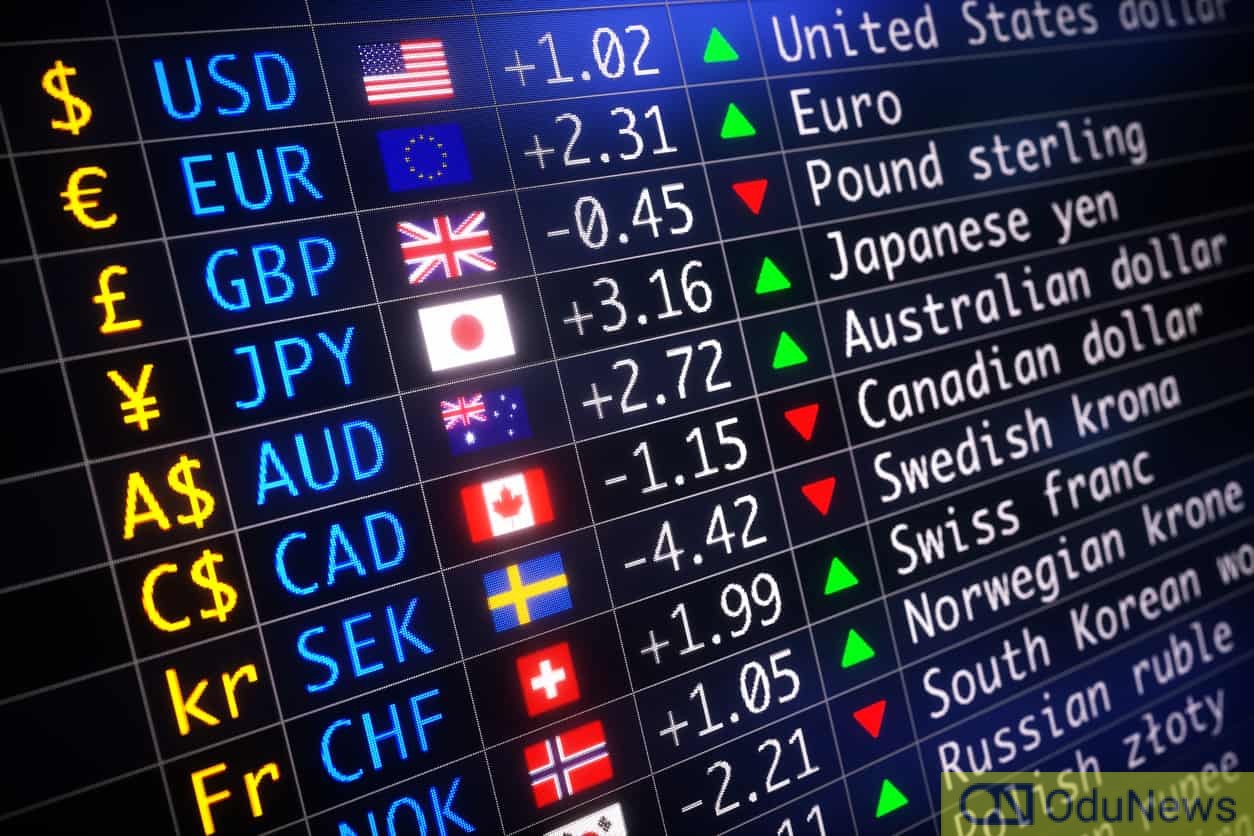Nigeria’s average foreign exchange inflow went down by 17.3% to $6.58 billion in April 2022 when compared with $7.95 billion in March, OduNews reports.

This was contained in a report released by the Central Bank of Nigeria over the weekend.
It noted that total FX outflow also decreased by 11.3 per cent to $3.95 billion from $4.45 billion in the preceding month.
The report disclosed that FX inflow through the CBN declined by 25.6 per cent to $2.47 billion, from $3.32 billion, attributed mainly to 54.3 per cent decrease in non-oil components as a result of an inflow of $1.25 billion proceeds from government debts in the preceding month, as well as TSA, Third-party receipts and other official receipts.
According to the report, “FX autonomous inflow also decreased by 11.4 per cent to $4.11 billion from $4.63 billion, due to a decline in invisible purchases: ordinary domiciliary account ($1.33 billion) and non-oil export receipts ($0.49 billion).
“FX outflow through the Bank declined by 19.3 per cent to $2.86 billion from $3.54 billion in March, due, largely, to decreases in FX sales at the Investors and Exporters window (I&E), Small and Medium Enterprises (SME) intervention and interbank/invisible FX windows, Drawings on Letters of Credits (LCs), as well as Public Sector/ Direct Payments.
“Autonomous outflow, increased by 20 per cent to $1.09 billion from $0.91 billion in March, on account of increased invisible imports. Consequently, a net outflow of $0.39 billion was recorded through the Bank in April 2022, compared with a net outflow of $0.23 billion in the previous month.”
Specifically, the report stated that weaker global growth concerns amid global inflation pressures and uncertainties in the international crude oil market, led to a decline in general trade performance in April 2022.
It revealed that Nigeria’s total trade declined by 8.4 per cent to $10.79 billion from $11.78 billion in March 2022.
“The development led to a decline in the trade surplus by 50.8 per cent to $0.93 billion in the review period from $1.89 billion in the preceding month. A disaggregation showed that aggregate export receipts fell by 14.3 per cent to $5.38 billion from $6.29 billion in March.
“Similarly, merchandise import fell marginally by 0.3 per cent to $4.07 billion, from US$4.08 billion in the preceding month, ”the report stated.
The report added that the government retained revenue increased owing to higher allocation from the Federation Account.
“At N417.96 billion, the provisional retained revenue of the FGN rose by 14.3 per cent, relative to the level in the preceding month. However, it fell short of the budget by 53.3 per cent, indicating the lingering revenue challenges. Aggregate expenditure rose in April 2022 as the Federal Government ramped up public investment. Provisional aggregate expenditure rose by 23.8 per cent to N1,061.04 billion, from N856.87 billion in March.
“The increase was driven by the 94.1 per cent and 11.3 per cent increase in capital and recurrent spending, respectively. The significant rise in capital expenditure indicates the government’s commitment to infrastructural development. Nevertheless, recurrent spending maintained its dominance in total expenditure, accounting for 71.4 per cent; capital expenditure and transfers constituted the balance of 24.7 per cent and 3.9 per cent, respectively.
“The 14.3 per cent increase in FGN retained revenue was offset by the 23.8 per cent rise in public spending, leading to an expansion of the fiscal deficit. At N643.09 billion, the provisional fiscal deficit of the FGN was 30.9 per cent above the level in the preceding month, “the report said.
With a decline in retained revenue and increase in expenditure, the federal government has recorded a whopping sum of N2.26 trillion as fiscal deficit in the first four months of 2022.
This is 17 per cent below N2.72 trillion fiscal deficits reported in first four months of 2021.
Analysis of the report revealed that fiscal deficit in January was N545.63billion and it moved by 6.5 per cent to N580.93billion in February 2022. The figures, thus, dropped to N491.28billion and recorded a sharp increase of 31 per cent to N643.09billion in April 2022.


Comments are closed.